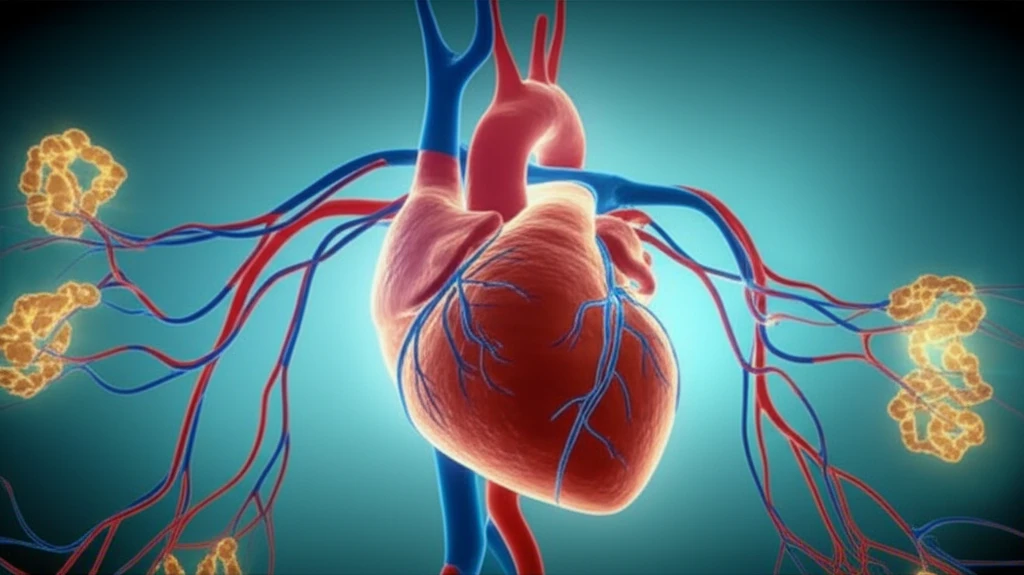
Unlocking the Secrets of APOL3: How This Protein Could Revolutionize Heart Health
"Discover how Apolipoprotein L3 (APOL3) influences endothelial function and its potential impact on preventing cardiovascular diseases."
Cardiovascular diseases (CVDs) remain a leading cause of mortality worldwide, underscoring the urgent need for innovative strategies to improve heart health. At the heart of vascular well-being lies the endothelium, the inner lining of blood vessels that regulates blood pressure, permeability, and overall vessel function. Endothelial dysfunction, characterized by impaired regulation, is a critical factor in the development of atherosclerosis and related conditions.
Emerging research has spotlighted the Apolipoprotein L (APOL) family, a group of proteins with poorly understood functions but suggested involvement in inflammatory processes and cell death mechanisms. Among these, Apolipoprotein L3 (APOL3) has garnered attention for its potential role in endothelial cells and its response to factors known to contribute to atherogenesis. Understanding APOL3's function could unlock new therapeutic avenues for combating endothelial dysfunction and, consequently, cardiovascular diseases.
This article delves into the groundbreaking findings of a recent study that investigated the role of APOL3 in endothelial cells, particularly its influence on angiogenesis, the formation of new blood vessels. By exploring how APOL3 interacts with key signaling pathways, this research provides valuable insights into its potential as a therapeutic target for preventing and treating heart disease.
How Does APOL3 Influence Blood Vessel Formation?

The study employed a CRISPR/Cas9 technique to analyze the effects of APOL3 gene knockout in human microvascular endothelial cells (HMEC-1). Scientists examined various aspects of endothelial cell function, including cell migration, tubulogenesis (the formation of tube-like structures), endothelial permeability, and intracellular signal transduction. Kinase phosphorylation and angiogenesis gene expression were also assessed to provide a comprehensive understanding of APOL3's role.
- APOL3 Induction: Among the APOL family members, APOL3 was the only one induced by myeloperoxidase, oxidized LDL, VEGF, and FGF treatments.
- Increased Endothelial Permeability: Invalidation of APOL3 increased endothelial permeability, suggesting a compromised barrier function.
- Reduced Wound Repair and Tubule Formation: APOL3 knockout reduced wound repair and tubule formation in vitro, particularly under MPO and VEGF-induced conditions.
- Inhibition of Pro-Angiogenic Signaling: Some pro-angiogenic signaling pathways (ERK1/2 and FAK) and genes were partially inhibited in APOL3 knockout cells.
The Future of APOL3 Research: New Hope for Heart Health
The study highlights the significance of APOL3 in regulating angiogenesis and endothelial function, marking it as a potential therapeutic target for cardiovascular diseases. By understanding its specific roles in these processes, future research can focus on developing targeted therapies that modulate APOL3 activity to promote vascular health. As research continues to unravel the complexities of APOL3, the potential for innovative treatments and preventive strategies for heart disease grows ever closer. Stay informed and proactive about your heart health, as new discoveries like these may shape the future of cardiovascular care.
